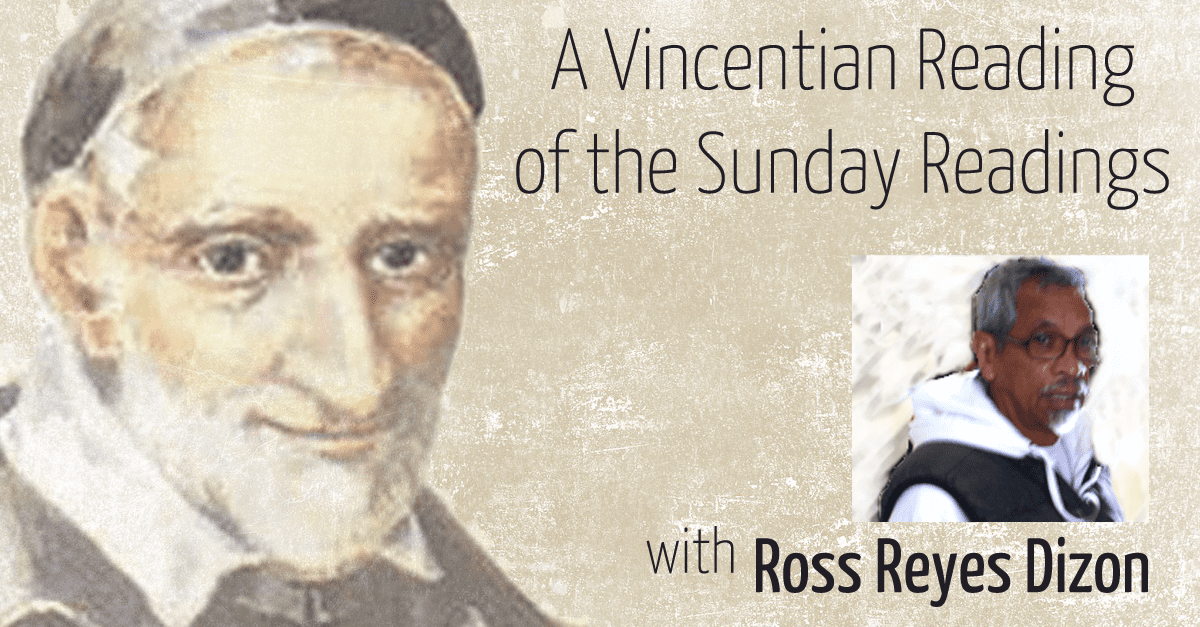Roundabout Ways We Take to Get Our Way
Jesus is the image of the invisible God. He is the roundabout way that means much more to us than all the other roundabout ways God has taken.
Many, if not all, have taken roundabout ways. The Hebrews, as God plans it, take a roundabout way as they leave Egypt.
Jesus, too, takes a roundabout way to go from Tyre to the sea of Galilee and the Ten Cities (Mk 7, 31). For he goes north, through Sidon, then southeast to get to where he wants. This has puzzled students of the Gospels (The New Jerome Biblical Commentary [Englewood Cliffs, NJ: Prentice Hall, 1990] 41:50).
And these two roundabout ways are not bad. Nor are many other roundabout ways, literal or figurative. Not a few of them have to do with one’s background or culture. And one deems it good that missionaries know of these roundabout ways that mean respect.
So, a scholar of the law tests Jesus. Maybe he wants to know how the law fits in in Jesus’ and his sent ones’ healings and preaching. But he does not ask so in a direct way; he says, “Teacher, what must I do to inherit eternal life?”
Jesus, in turn, does not answer in a direct way but with a question. Then the wise answers, and it seems all is well. But not so quick. For the one who wants to stand his ground wants to discuss the issue more.
Hence, he asks, “And who is my neighbor?” He likes to know if “neighbor” means all or just the Jews, his kin, the good folks. And Jesus answers in not a direct way, that is to say, through a story.
Good and bad roundabout ways.
In the story, the priest and the Levite take roundabout ways. They serve in the temple. Are they not to help more than others those in need? And then comes a Samaritan.
Might “Samaritan” make the scholar’s blood boil? Does he think that there is no way a Samaritan will help? Maybe. After all, for the Jews, Samaritan means a pagan who cannot be just or show mercy. One that Jews are to hate, belittle and ward off. But this nobody helps. Hence, the tag they put on him does not fit him.
And his mercy makes him act. For he goes near the badly hurt, binds his wounds, pours oil and wine on them. He takes him, too, to an inn, cares for him, and pays for the cost of the inn. To add to the roundabout ways we say or do things, let us say he puts his money where his mouth is.
And the scholar sees good in all this. We, in turn, have to pass from what the scholar sees to what Christ does. From vision to action. From theory to practice. We have to love with the strength of our arms and the sweat of our brow (SV.EN XI:32). Till we give up our bodies and shed our blood. We have to be Christ’s. And this is not so much that we love our neighbor as that we are neighbor to others. For we are all children of the same Father, we be good or bad. Black, brown, white or yellow, of this or that religion.
Lord Jesus, through you God has been neighbor to us. Deliver us, by the Spirit, from the roundabout ways that will take us away from you. From the Father, and from our brothers and sisters.
10 July 2022
15th Sunday in O.T. (C)
Dt 10-14; Col 1, 15-20; Lk 10, 25-37







0 Comments